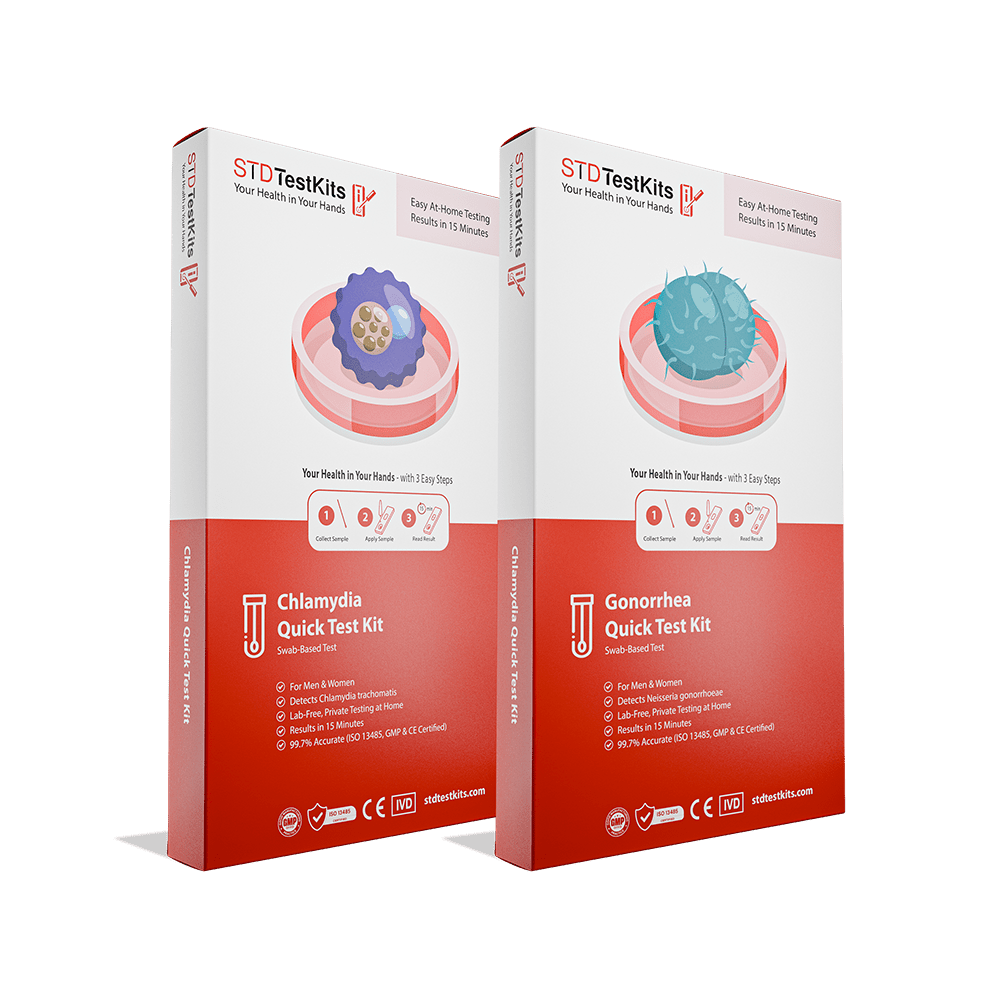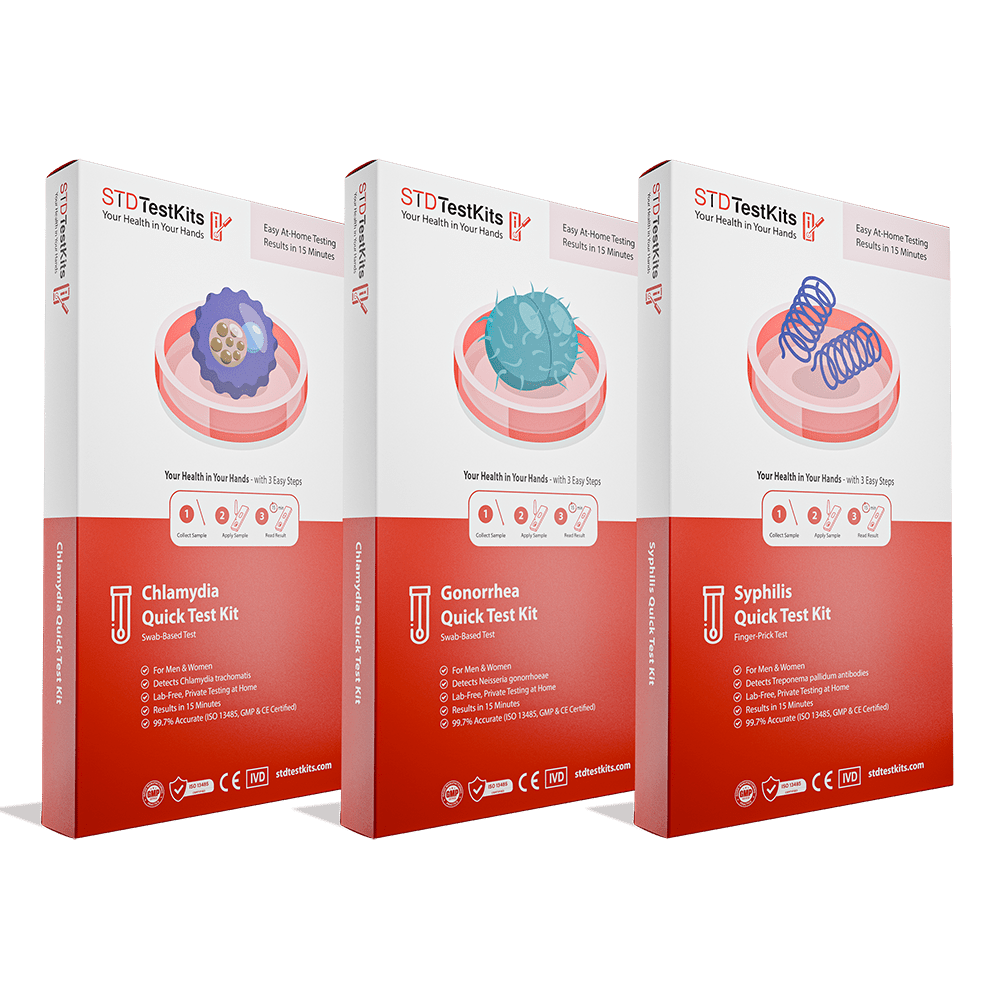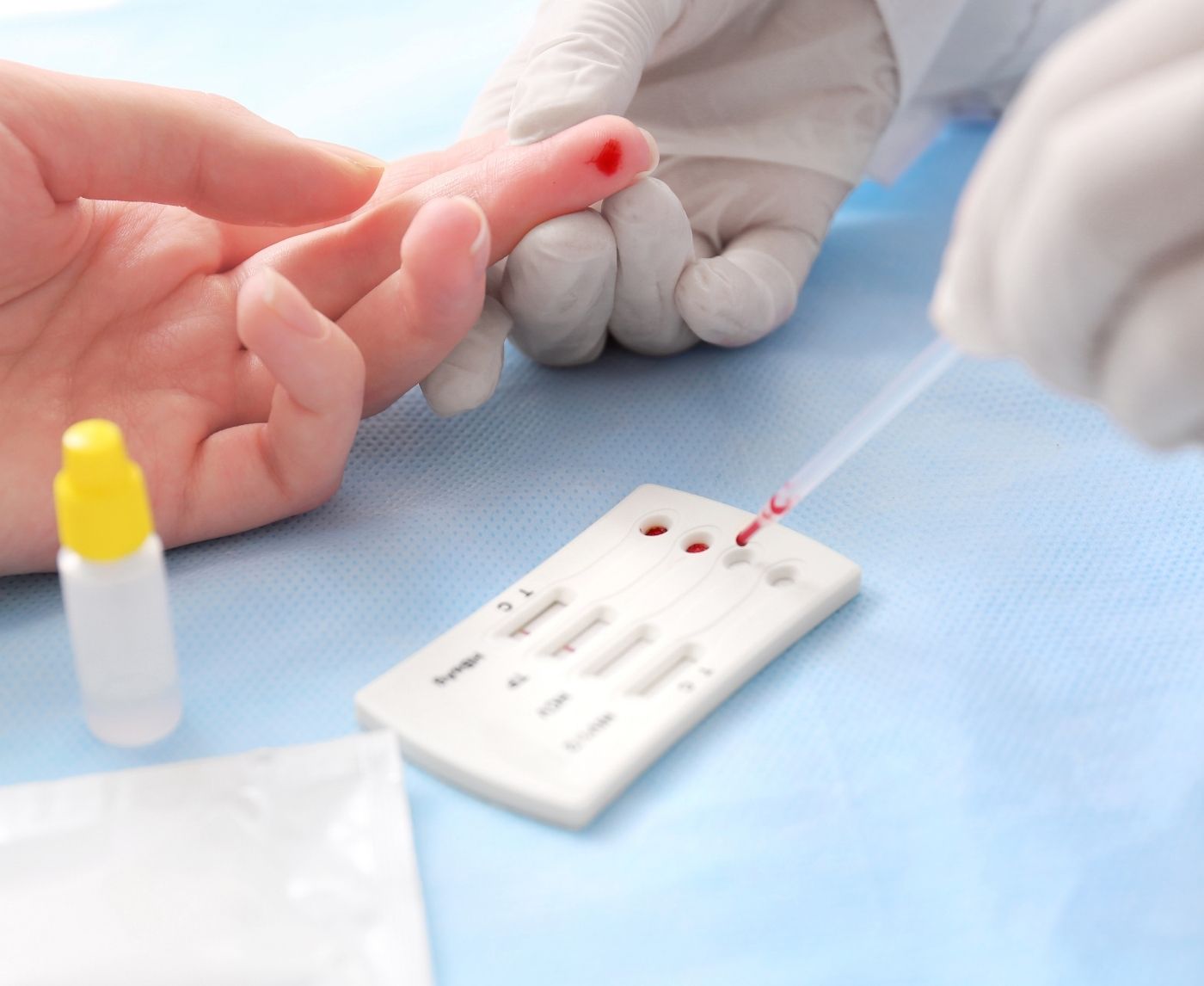Tested Too Soon for HIV? Here’s What That Negative Could Mean
Quick Answer: At-home STD tests offer private, doctor-reviewed results without needing to visit a clinic, perfect for remote or rural Colorado residents with limited access to in-person care.
“I Was 90 Miles from a Clinic, and Something Was Burning”
Ty, 32, lives outside of Creede, Colorado. Population: around 300. Closest full-service clinic? Nearly two hours away.
“I’d just come back from a camping trip and noticed this burning sensation. I thought, maybe I didn’t clean well enough? But it didn’t go away. Google started throwing the word herpes at me.”
Ty doesn’t have insurance. He works seasonal forest service gigs, and the last time he visited a clinic was years ago in Denver. When he searched “STD test Creede Colorado,” nothing came up except vague public health listings with weeklong waits, if they even answered the phone.
“It’s not like I could walk into Walgreens and say, ‘Hey, can someone check my junk?’ It’s different out here. We value privacy. And we don’t have the luxury of pretending sex doesn’t happen just because we’re not in Boulder.”
Eventually, Ty found a combo at-home STD test kit online. It shipped discreetly to a PO box. No drive, no paperwork, no judgment.
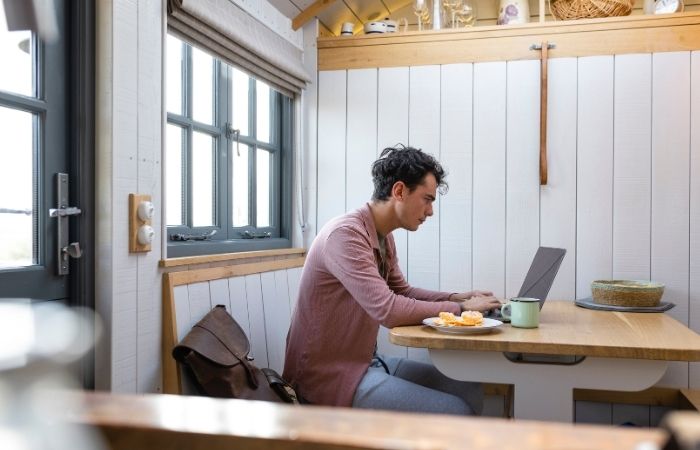
People are also reading: Think It’s Just a Skin Thing? Syphilis Rashes Are Trickier Than You Think
“I Thought It Was a UTI, Turns Out, It Was Chlamydia”
Ellie, 26, lives in a cabin outside Nederland. She’s one of many Coloradans who are proud to be off-grid, solar power, composting toilets, zero reliance on city systems. But when her symptoms started, her independence became a trap.
“I felt this weird stinging when I peed. Classic UTI, right? Except it didn’t go away with cranberry juice or hydration. And my boyfriend had been seeing someone else before we got together.”
Ellie was embarrassed. She hadn’t been tested since moving to the mountains. She didn’t want to drive into Boulder and be recognized. She didn’t want to explain why she needed an STI panel when she walked into a tiny rural clinic.
She Googled “STD test Nederland CO no clinic” and found an option to test herself at home. She ordered the Chlamydia At-Home STD Test Kit, followed the instructions, and got results within days.
“Honestly, the mail-in test saved me. I felt so much relief just knowing what it was and how to treat it. I didn’t have to sit in shame. I just took care of it.”
This isn’t just about convenience, it’s about trust, logistics, and stigma. For folks living outside the Denver metro area, here’s what’s working against them:
- Distance: In places like Gunnison County or Hinsdale, the nearest clinic could be 60–100 miles away.
- Transportation: No car? No test. Public transportation barely exists in rural zones.
- Insurance: Many outdoor workers, artists, and seasonal folks don’t have coverage, or don’t want STI tests showing up on bills.
- Privacy: In towns where everyone knows everyone, it’s hard to walk into a clinic without fear of judgment.
- Clinic Hours: Most local clinics are only open during weekday work hours and offer limited STI testing slots.
That’s not even touching how hard it is for queer folks, teens, or non-monogamous people to feel safe asking for a test in tight-knit, traditional communities.
Common Symptoms That Shouldn’t Be Ignored, Even in the Wild
STDs don’t care if you live in Denver or a canvas tent at 10,000 feet. Here are some signs that might get misattributed to “hiking irritation” or “bad soap” but could point to an actual infection:
- Burning sensation: Especially during urination or after sex. Don’t chalk it up to dehydration too fast.
- Unusual discharge: Milky, yellow, or foul-smelling discharge isn’t from the altitude.
- Itchy genitals after hiking: Yes, sweat and friction exist, but so do fungal infections and herpes outbreaks.
- Painful sores: These aren’t always bug bites. Herpes and syphilis often start this way.
- Rashes on thighs or groin: Could be jock itch, or something more.
If you’re searching “can you get an STD from a hot spring,” you’re not alone. While it’s rare to contract one from water alone, sex in those settings (or sharing towels, razors, etc.) can definitely spread infections.
“I Just Didn’t Want Anyone to Know” , The Shame That Delays Testing
If you’re living in a rural town like Rangely, Leadville, or Dolores, you know how fast news spreads. The local pharmacist might also be your neighbor. The nurse might go to church with your parents. It’s not paranoia, it’s real fear of exposure, especially for anything tied to sex.
That fear drives silence. Silence delays testing. And delayed testing spreads infections.
“I had this bump, and I literally Googled ‘STD bump or pimple after hiking’ at 3AM. I couldn’t sleep,” said Miguel, 29, who lives near Steamboat Springs. “I just didn’t want to explain it to anyone face-to-face. Even if they were professionals.”
In cities, there are anonymous testing sites. In the mountains, there’s social overlap. And in that overlap, shame thrives. For many, the risk of being seen is worse than the risk of being infected. That’s exactly where at-home STD kits come in.
How At-Home STD Kits Work (and Why They’re Not Sketchy)
Let’s bust a myth: not all at-home STD tests are created equal. But reputable brands, like the ones offered by STD Test Kits, use the same science and labs your doctor’s office does, just without the appointment.
Here’s how the process works:
- Choose Your Test: You can pick a single-test kit (like just herpes or chlamydia), or order a combo panel.
- Wait for Your Kit: Kits arrive in plain packaging, no branding, no red flags on the box.
- Collect Your Sample: Depending on the test, it can be a finger prick, urine sample, or swab.
- Ship Back: Prepaid envelope is included. Results come via secure online portal, no in-person awkwardness.
- Get Results: Usually within 1–3 days of lab receipt. Some even offer prescriptions or guidance if you test positive.
These aren’t bootleg Amazon tests. They’re CLIA-certified and FDA-approved in many cases. And yes, they’re reliable.
Who These Tests Are Made For (Hint: It’s You)
You don’t need to be “promiscuous” or “risky” to need an STD test. Let’s rewrite that narrative right now. At-home STD testing is for:
- Backcountry workers who can’t take a full day off to drive into town
- Teens and college students who live at home and want privacy
- Queer folks who don’t trust the judgment they’ll face at small-town clinics
- Monogamous couples who just want peace of mind
- Anyone who had a weird hookup, got ghosted, or is just feeling off
STDs don’t target certain types of people. Shame does.
“It wasn’t about guilt. I just wanted to know if I was okay,” said Asha, 34, who lives near Salida. “I had a partner who wasn’t honest about their status. The at-home kit gave me my answer, on my terms.”
If you’ve tried Googling “STD testing in Pagosa Springs” or “clinic in La Plata County,” you’ve probably seen outdated info, broken links, or sites that expect you to drive hours.
In fact, here’s what usually happens:
- You find a county health department page... with no appointment scheduler
- You call, only to be told they test “by referral only” or “next week”
- You see national chains like Planned Parenthood, but none within 100 miles
- You panic. Then close the browser. Still itchy.
At-home test kits bypass all of that. No need to hope a rural clinic will have availability, or discretion. You order, test, ship, and know.
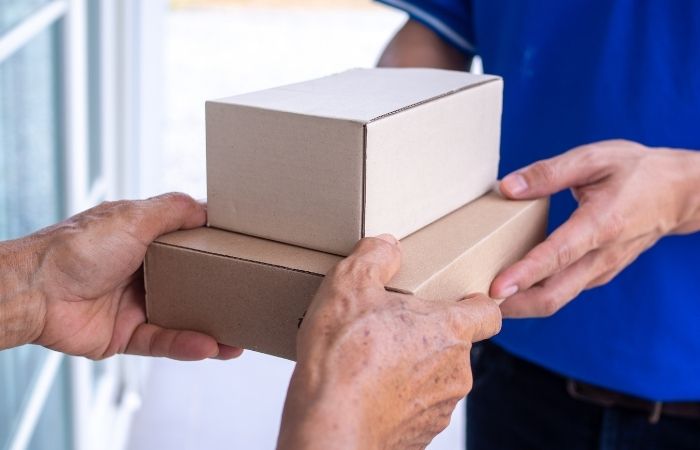
People are also reading: What Syphilis Looks Like in Newborns (And Why It’s Often Missed)
Let’s Talk Medicaid, Money, and Mountains
One of the biggest barriers to testing in rural Colorado isn’t just location, it’s cost. Even if you live near Montrose or Glenwood Springs, you might still hesitate to get tested because:
- You don’t have insurance: Many remote workers, farmers, or artists are self-employed or uninsured.
- You're on Medicaid: Not every clinic in rural counties accepts Colorado Medicaid for STI testing, or they do, but only certain days.
- You don’t want a bill showing up: Even if insurance pays, an Explanation of Benefits (EOB) might reveal testing to family members.
At-home testing skips that whole mess. Kits are affordable (some starting under $50), and no insurance info is needed. You pay once, test privately, and your results stay with you, not your provider, your parents, or your pharmacy.
Living Off-Grid Doesn’t Mean Living in the Dark
Colorado is full of people who trade convenience for freedom. If you’re running a tiny home in San Juan County or building a permaculture homestead near Ridgway, you already know how to survive on your terms. Sexual health should be no different.
Testing at home doesn’t mean you're reckless or paranoid. It means you give a damn. It means you respect your partners. It means you’re brave enough to want answers, even when no one’s watching. And honestly? The “off-grid” lifestyle is tailor-made for mail-in testing. You’re used to doing things yourself. This is just another form of self-sufficiency.
Want to break the stigma? Start talking. Here are a few ways people in small communities are making sexual health normal again:
- Group Testing Pacts: Friends agree to test together, compare kits, and normalize the process.
- Queer Wellness Circles: In places like Durango and Carbondale, queer folks are forming underground health collectives and buying tests in bulk.
- Partners Who Ask: “Hey, would you be down to test before we hook up?” is becoming a surprisingly sexy line.
Sex is natural. So is caution. What’s weird is pretending that people in Leadville don’t get horny, don’t get vulnerable, or don’t deserve safety just because they’re outside metro clinics’ reach.
Here’s what testing actually says:
“I respect you enough to care about your body and mine.”
When you use a legit at-home test, you’ll get results that are:
- CLIA-certified: That means they’re processed in labs that meet federal standards
- Confidential: Only you get the report unless you choose to share it
- Actionable: Some kits include free telehealth consults or prescriptions for common infections like Chlamydia or Gonorrhea
And if they don’t? You can still take your results to a local provider (or urgent care) and skip the testing step. That’s one less visit, and one more step forward.
Reminder: The most common STDs in Colorado, like Chlamydia, Gonorrhea, and Herpes, are treatable. But only if you catch them. And that starts with testing.
FAQs
1. Can I really trust an at-home STD test if I live in the middle of nowhere?
Yep. These tests don’t care if you live in downtown Denver or in a van parked outside Ouray. As long as you can drop it in a mailbox (or a PO box), you’re golden. The labs are CLIA-certified and process samples the same way they would if you walked into a clinic, just without the waiting room.
2. I’m itchy after a long hike. Is that just sweat or something more?
It could totally be from friction, bad detergent, or swampy hiking gear... but if it doesn’t go away in a few days, or it burns when you pee, or you spot weird discharge or bumps? Test. The mountains don’t make you immune to STDs.
3. Will my roommate/mom/ranch hand know what’s in the package?
Nope. The packaging is discreet, no neon letters saying “STD INSIDE” or anything ridiculous. You could tell them it’s vitamins. Or trail mix. Or just... your business. Because it is.
4. Can I use these tests if I’m under 18?
In many cases, yes. You don’t need permission to care about your health. And the cool thing is, at-home kits skip the awkward convo with a school nurse or a parent who thinks “abstinence-only” works.
5. Can I get an STD from a hot spring?
Not just from sitting in one. But if you’re hooking up in the water (and let’s be honest, it happens), or sharing towels or razors with someone who’s infected, yeah, things like herpes, pubic lice, and even molluscum can get passed around.
6. How fast are the results, really?
Most people get them in 1–3 business days after the lab gets your sample. So if you drop it Monday, you could be chilling with answers by Thursday. That’s faster than getting a clinic appointment in half of Colorado’s rural zip codes.
7. What if the test says I’m positive?
First: breathe. Then act. Some kits include treatment options or telehealth consults. And if not, you can take those results to urgent care or a local provider and skip the retest. Most STDs are treatable. None of them mean you’re broken or dirty.
8. What’s the most common STD in Colorado?
Chlamydia, by far. Especially in people under 30. The weird part? It often shows no symptoms. That’s why regular testing matters, even if everything feels “fine.”
9. I’m in a monogamous relationship. Do I still need to test?
If you haven’t both been tested since your last partners, yes. Monogamy isn’t immunity. Sometimes people bring stuff into relationships without knowing it. Testing is care, not a sign of distrust.
10. Why is this better than just waiting it out?
Because waiting means guessing. Guessing means stressing. And stressing means you’re probably Googling symptoms and spiraling. Testing cuts through the noise. It gives you data. And with data comes peace of mind, or a plan. Either way, you win.
You Deserve Answers, Not Assumptions
Living in rural Colorado doesn’t mean you have to live with fear, confusion, or silence around your sexual health. Whether you're off-grid in the Rockies, couchsurfing through ski towns, or simply not ready to face a waiting room full of strangers, you still deserve clarity, privacy, and peace of mind.
At-home STD testing isn’t just an option. For many, it’s the only realistic one, and that’s okay. It works. It’s real. And it can change everything.
End the guessing game. Order a confidential, doctor-reviewed STD test kit, delivered to your mountain doorstep.
Sources
1. STI and HIV Resource Center – Colorado Department of Public Health & Environment
2. Facts, Testing, and Locations for STI Testing – CDPHE
3. STI/HIV/Viral Hepatitis Testing Options – CDPHE
4. At-Home STI Testing via CDPHE–Partnered imaware Program
5. Denver “Up Close” Sexual Health Program – Denver Public Health & Environment
6. Sexual and Reproductive Health Resources – Colorado State University Health





